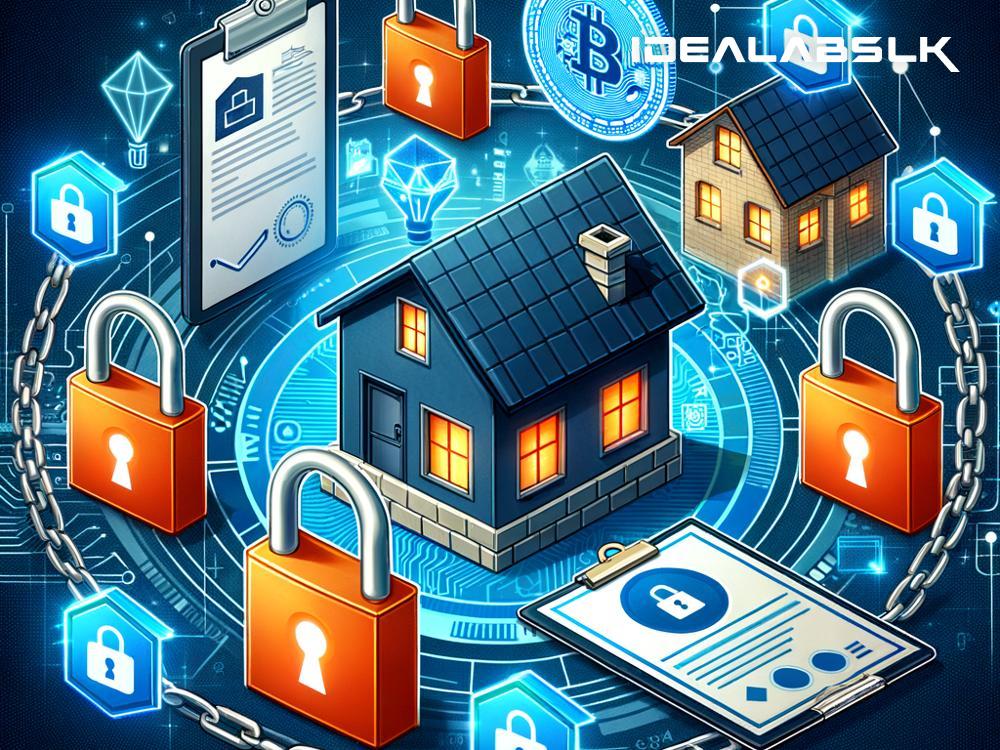Combating Real Estate Appraisal Fraud with Blockchain Technology
In the real estate world, appraisal fraud is a serious issue that can cause significant financial losses and undermine trust in the market. This kind of fraud happens when property values are intentionally misrepresented to get loans approved or to sell properties at higher or lower prices than they are actually worth. However, a bright new approach to solving this problem has emerged, thanks to blockchain technology. In this article, we're going to explore how blockchain can be a game-changer in reducing real estate appraisal fraud.
Understanding Blockchain
First things first, what is blockchain? Imagine it as a digital ledger that's open for everyone to see, but extremely secure and nearly impossible to tamper with. Each block in the chain contains a number of transactions, and once a block is completed, it's added to the chain in a linear, chronological order. The information it contains is distributed across a network of computers, making it very transparent but also secure, as altering data on one block would require changing every subsequent block, which is virtually impossible to do across so many computers.
The Struggle with Real Estate Appraisal Fraud
Real estate appraisal fraud can take many shapes, but it often involves either inflating or deflating the value of a property. This can lead to loans being secured under false pretenses, buyers paying more than they should, or sellers getting less than they deserve. The current system relies heavily on human appraisers, who can be manipulated or can make errors, resulting in inaccurate appraisals.
Enter Blockchain Solutions
Blockchain technology addresses these issues head-on, offering several key solutions to minimize appraisal fraud:
-
Transparency: With blockchain, all transactions and appraisals are recorded in a manner that's transparent to all parties involved. This means any attempt to manipulate data can be detected much more easily, as discrepancies would be visible
-
Immutable Records: Once data is entered into the blockchain, it cannot be altered or deleted without being noticed. This makes it an incredibly secure way of storing property values and transaction histories, hugely reducing the chances of fraudulent appraisals.
-
Smart Contracts: These are self-executing contracts with the terms of the agreement directly written into lines of code. They could automate many processes in real estate transactions, including appraisals, removing the opportunity for fraudulent manipulation by automating the valuation process based on predefined, transparent criteria.
-
Decentralization: Because blockchain operates across a network of computers rather than a centralized authority, it removes the possibility of a single point of failure or corruption. This means appraisals and records are not under the control of any one party that could potentially manipulate them for fraudulent purposes.
Practical Applications
Several startups and established companies are already exploring ways to incorporate blockchain into real estate to counter appraisal fraud. For instance, they're developing platforms where all parties in a real estate transaction can access and verify property appraisals and histories. This could significantly shorten transaction times, reduce costs, and most importantly, ensure that the property values are accurate and trustworthy.
Additionally, governments and regulatory bodies could use blockchain to maintain public records of real estate transactions, appraisals, and title histories. This would make it easier to verify the accuracy of property values and identify patterns that might indicate fraudulent activity.
The Road Ahead
The potential of blockchain to revolutionize real estate and put a dent in appraisal fraud is immense. However, to fully realize its benefits, widespread adoption and standardization across the industry are necessary. Real estate professionals, technologists, regulators, and governments need to work together to create a framework that allows blockchain solutions to be implemented effectively and securely.
Furthermore, education plays a crucial role. The more people understand blockchain and its benefits, the faster it can be adopted. Thus, investing in education and awareness about blockchain technology in the real estate sector is vital.
Conclusion
Blockchain technology offers a promising solution to combat real estate appraisal fraud. By providing a transparent, secure, and immutable record-keeping system, it can significantly reduce the chances of fraudulent appraisals. While there are challenges to overcome, including the need for widespread adoption and education, the potential benefits for the real estate market are undeniable. As we move forward, embracing blockchain could lead to a more transparent, efficient, and trustworthy real estate industry.

